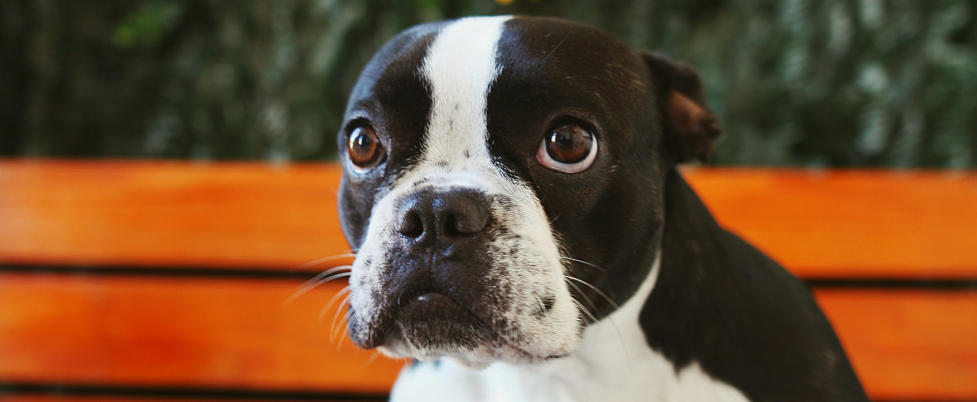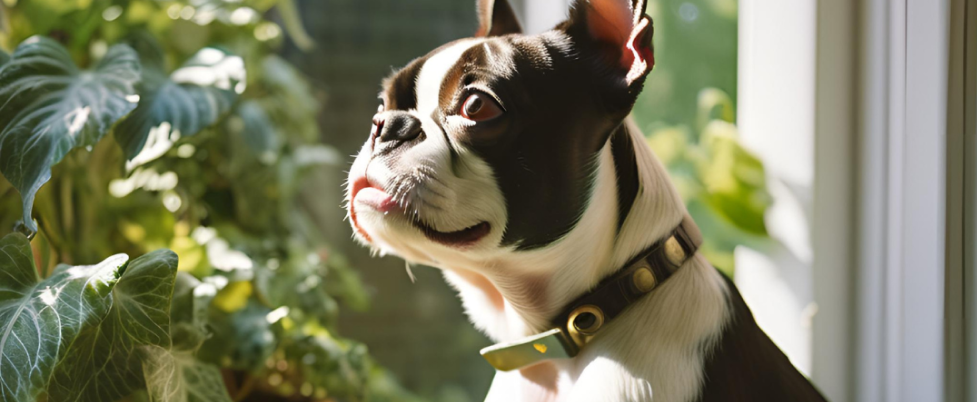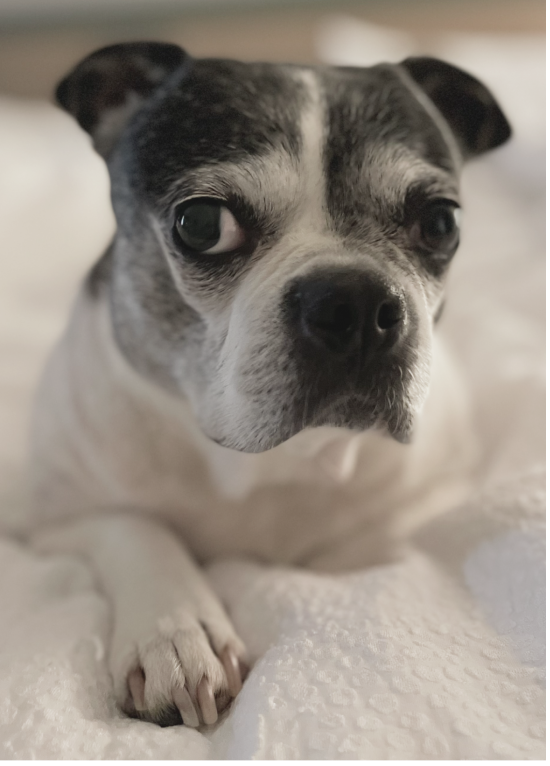TRAINING & BEHAVIOR / BEHAVIORAL HELP

Disclaimer: I am not a veterinarian. The following advice is based on general knowledge about Boston Terriers and common practices in pet care. Always consult with a professional veterinarian if you’re concerned about your pet’s health or behavior.
Introduction: What is Separation Anxiety?
Separation anxiety occurs when a dog becomes anxious or stressed when left alone. It can manifest as destructive behavior, excessive barking, or other signs of distress.
Why Boston Terriers Are Prone to It
As a breed, Boston Terriers are known for being affectionate and loyal. They can become overly attached to their owners, leading to separation anxiety.
Recognizing the Symptoms of Separation Anxiety in Your Boston
Common Signs to Look For
Excessive Barking or Howling
- Constant vocalization when left alone can be a major indicator.
Destructive Behavior
- Chewing furniture, shoes, or doors when left unattended.
Pacing and Restlessness
- Your Boston may walk in circles or try to escape from confined spaces.
Accidents Inside
- Your dog may urinate or defecate indoors despite being house trained.
Salivation or Drooling
- Excessive drooling when you’re preparing to leave or when you’re gone.
How to Handle Separation Anxiety in Your Boston Terrier
1. Create a Safe and Comfortable Space
- Designate a “Safe Zone”
- Set up a quiet area with their favorite bed and toys.
- Consider using calming aids like pheromone diffusers (e.g., Adaptil).
- Make Their Environment Familiar
- Leave items with your scent or familiar blankets to help them feel secure.
2. Gradual Desensitization
- Start with Short Departures
- Leave your dog alone for just a few minutes and gradually increase the time.
- Avoid making a big deal when you leave or return to prevent anxiety buildup.
- Practice Departures
- Pick up your keys, put on your shoes, or do other leaving actions without actually leaving to break the association between these actions and your departure.
3. Mental and Physical Stimulation
- Exercise Your Boston Terrier
- Ensure your Boston gets plenty of physical activity to reduce excess energy.
- Long walks or play sessions before leaving will help tire them out.
- Interactive Toys
- Use puzzle toys or treat-dispensing toys to keep your dog distracted and mentally engaged while you’re gone.
4. Training and Positive Reinforcement
- Reward Calm Behavior
- When you return, reward your dog for being calm and not overly anxious.
- Basic Obedience Training
- Strengthen your dog’s obedience skills to improve overall confidence and reduce stress.
5. Consult a Veterinarian or Professional Trainer
- Seek Professional Help
- If your Boston’s anxiety persists, it may be time to consult a veterinarian or professional trainer.
- They may recommend medication or specific behavioral training techniques tailored to your dog’s needs.
Preventive Measures: How to Avoid Separation Anxiety in the Future
1. Socialization from an Early Age
- Expose Your Boston to Different Environments
- Introduce your puppy to new people, pets, and places to build their confidence and independence.
2. Keep Your Dog Independent
- Encourage Alone Time
- Practice leaving your puppy in a separate room for short periods while you’re home to help them get used to being alone.
3. Be Consistent
- Stick to a Routine
- Maintain a consistent schedule for meals, walks, and bathroom breaks to help your Boston feel more secure.
What to Avoid When Managing Separation Anxiety
Don’t Punish Your Dog
- Punishing a dog with separation anxiety can worsen the problem.
Don’t Overwhelm Them with Attention
- While it’s tempting to overcompensate when you’re home, avoid excessive attention when returning to reduce excitement and stress.
When to Seek Professional Help
Persistent or Severe Symptoms
- If your Boston’s anxiety continues despite efforts or worsens, consult with a vet for a possible underlying condition.
Consider Anti-Anxiety Medication
- Your vet may recommend medication to help manage your dog’s separation anxiety.
Conclusion: Have a Plan and be Consistent
Separation anxiety can be a tough challenge for both you and your Boston Terrier. By understanding the symptoms, implementing a consistent training plan, and seeking professional help if needed, you can help your Boston become more comfortable with being alone. Always be patient and remember, consistency is key in managing separation anxiety.

Additional Resources
AKC – Separation Anxiety in Dogs
PetMD – Separation Anxiety in Dogs
Other articles by this author

“Hi! I’m Weezie, a spirited Boston Terrier / French Bulldog mix and self-proclaimed expert on everything Boston.
- Article 1
- Article 2
- Article 3